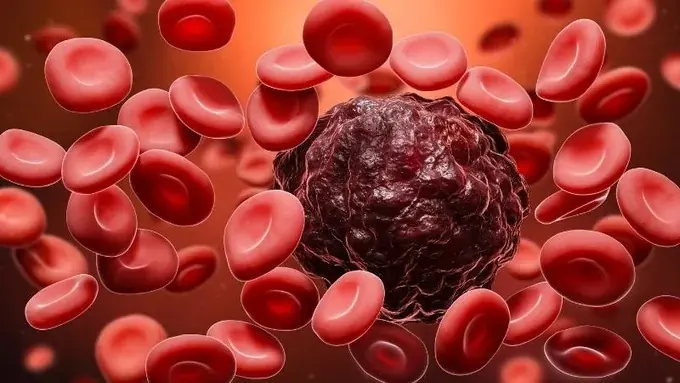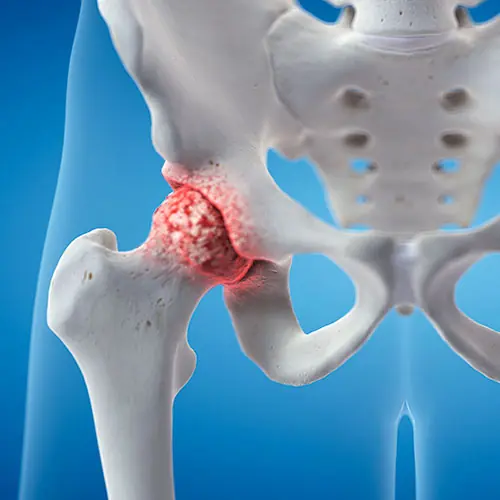
Shocking Study: Popular Birth Control Linked to Higher Brain Tumor Risk in Women
A new large-scale study of more than 10 million women in the U.S. has raised concerns about a widely used contraceptive injection. Researchers found that long-term use of depot medroxyprogesterone acetate (commonly known as Depo-Provera) may significantly increase the risk of developing meningioma, a type of brain tumor.
While meningiomas are rare, the findings highlight an important risk factor that women and their healthcare providers may want to consider when discussing contraceptive options.

Meningiomas are the most common primary brain tumor, typically arising from the membranes that cover the brain and spinal cord. Although they are often benign, their location can still cause serious health problems. According to the new analysis led by Dr. Varun Kshettry of the Cleveland Clinic, women who used depot medroxyprogesterone acetate faced a relative risk (RR) of 2.43 (95% CI 1.77-3.33) compared with women who did not use hormonal contraceptives.
The risk was particularly pronounced in women who had been exposed to the injectable contraceptive for more than four years or who started using it after age 31. Oral medroxyprogesterone acetate also carried some risk, but to a much smaller extent (RR 1.18, 95% CI 1.10-1.27). By contrast, other contraceptives — such as combined oral contraceptives, intrauterine devices (IUDs), progestin-only pills, and subdermal implants — showed no increased risk of meningioma.
Dr. Kshettry emphasized that the results could be especially valuable during risk-benefit conversations for women who may already be at higher risk of brain tumors. This includes individuals with a family history of meningioma, prior cranial radiation, or certain genetic conditions such as neurofibromatosis type II.
Why Hormones May Play a Role
Experts believe that hormones, particularly progesterone, could be key in understanding why meningiomas appear more frequently in women. Over 60% of meningiomas express progesterone receptors, and tumor size often grows during periods of higher hormone levels such as pregnancy or childbearing years. As Dr. Gilles Reuter of the Centre Hospitalier Universitaire de Liège and Dr. Britta Wandschneider of University College London explained, the data points to a “biological relationship” between sex hormones and tumor development.
The Scope of the Study
The research team examined data from the U.S. TriNetX database, covering 10,425,438 women across 68 healthcare organizations between 2004 and 2024. Importantly, only women with no prior history of meningioma were included, and groups were carefully matched for age, race, health history, and other factors.
Among women using depot medroxyprogesterone acetate, the incidence of meningioma was 7.39 per 100,000 patient-years, compared with 3.05 per 100,000 patient-years in matched controls. This translates to an attributable risk of 59%. The number needed to harm (NNH) was calculated at 1,152 women for depot medroxyprogesterone acetate — meaning one additional case of meningioma could be expected for every 1,152 women using this contraceptive. For oral medroxyprogesterone acetate, the NNH was 3,020 women.
Interestingly, the study also found a decreased risk of meningioma among women using combined oral contraceptives (RR 0.74), IUDs (RR 0.87), and the 52 mg levonorgestrel-releasing IUD (RR 0.79), suggesting that not all hormonal methods carry the same risk.
What This Means for Women
Although the findings are significant, researchers caution that the study is observational and based on insurance coding data, which may not capture every factor influencing brain tumor development. Still, the evidence adds weight to earlier research, including a 2024 French study that also found a potential link between injectable medroxyprogesterone acetate and increased tumor risk.
For women, the key takeaway is not panic, but informed decision-making. If you are currently using or considering depot medroxyprogesterone acetate, it may be worth having a discussion with your doctor about your individual risk factors and whether another contraceptive option may be a safer choice for you.
While meningiomas remain uncommon, this research suggests that some forms of hormonal contraception — particularly long-term injectable Depo-Provera — may raise the risk more than previously understood. Open conversations between women and healthcare providers are essential to balance effectiveness, convenience, and potential long-term health risks.
News in the same category


Eat this #1 meal to help unclog your arteries naturally

Canker Sores Are The Absolute WO:RST…Here’s How To Get Rid of Them Fast!

Cloves: 10 Health Benefits of Eating 2 Daily

How to Spot the Early Warning Signs of Cancer Growing in Your Body

New Research Finds 40-50% of Colon Cancer Cases Can Be Prevented by Doing These Simple Things

The Simple Trick to Get Rid of Ingrown Toenails Fast—You’ll Wish You Knew Sooner!

Statins warning: new research confirms these harmful side effects

5 Herbs Your Liver Wished You’d Start Eating More Often (Or At Least Try!)

If cancer is present, 3 key symptoms often appear in the morning

The Warning to People Who Regularly Walk Around Their Homes Barefoot

Foods That Add Inches to Your Waistline

Why the Neck Sags with Age: Causes, Solutions, and Prevention Tips

Top 3 Vitamins for Hip Arthritis

Anyone Who Wants to Avoid Having a Stroke Needs to Start Eating these 15 Foods Immediately

Put THIS Mixture Under Your Tongue Before Bed And NEVER Wake Up Tired Again!

4 Things You Should Never Say to Someone with ADHD (And Better Alternatives)
ADHD is often misunderstood, leading many people to make comments that, while well-intentioned, may actually cause harm. Knowing what not to say—and what to say instead—can make your conversations more empathetic, supportive, and genuinely helpful fo

Silent Danger: How Stalking Secretly Raises Women’s Risk of Heart Attack and Stroke
Being stalked is not just an emotional burden—it can leave a lasting mark on the body. A new study reveals that women who have been stalked face a sharply higher risk of heart attack, stroke, and long-term heart disease, proving that trauma isn’t onl

Breakthrough study shows lithium can ‘reverse’ Alzheimer’s damage even in advanced stages
News Post

Save this valuable remedy that helps de:toxify and can save the life of someone bitten by a ra:bid d:og or snake in just 1 minute.

The method to drive away an entire rat colony using just a handful of rice, without the need for harmful poisons.

Clean your house with this simple trick using water, and the house will be as clean as new, with no dust sticking, even if you don't clean it for a whole week.

Simple Homemade Cough Syrup Removes Phlegm From The Lungs

Eat this #1 meal to help unclog your arteries naturally

Canker Sores Are The Absolute WO:RST…Here’s How To Get Rid of Them Fast!

Mimosa Pudica Tea: How to Prepare and Health Benefits

7 Benefits and Uses of Ageratum conyzoides

Tips to clean rust from gas stoves with rice water and cooking oil, seems like a joke but the effect is surprising, the stove is sparkling clean

5 things you should never put in the washing machine, not only can they not be cleaned, they are also dangerous

The small round hole at the end of the nail clipper is useful

Mix toothpaste with rice water: Great use, solves problems both men and women encounter

Eating green bananas this way is very good for your health

Unexpectedly reduce electricity bill with the trick of putting tissue paper in the refrigerator - Anyone can do it

10 Shades of Japanese Whitening Secrets: Rice-Based Beauty Formula for Wrinkle-Free, Spotless Skin

This type of powder is often found in the kitchen. Just sprinkle a little on ornamental plants, the buds will be dense, and the flowers will fill the garden

Don’t Boil Eggs Directly In Water — Here’s How FIVE-STAR Hotels Cook Their Eggs!

When someone in the family passes away, you should know that you should not keep these 4 relics for your children and grandchildren.

3 mistakes when using plastic wrap that can cause cancer that many people make
